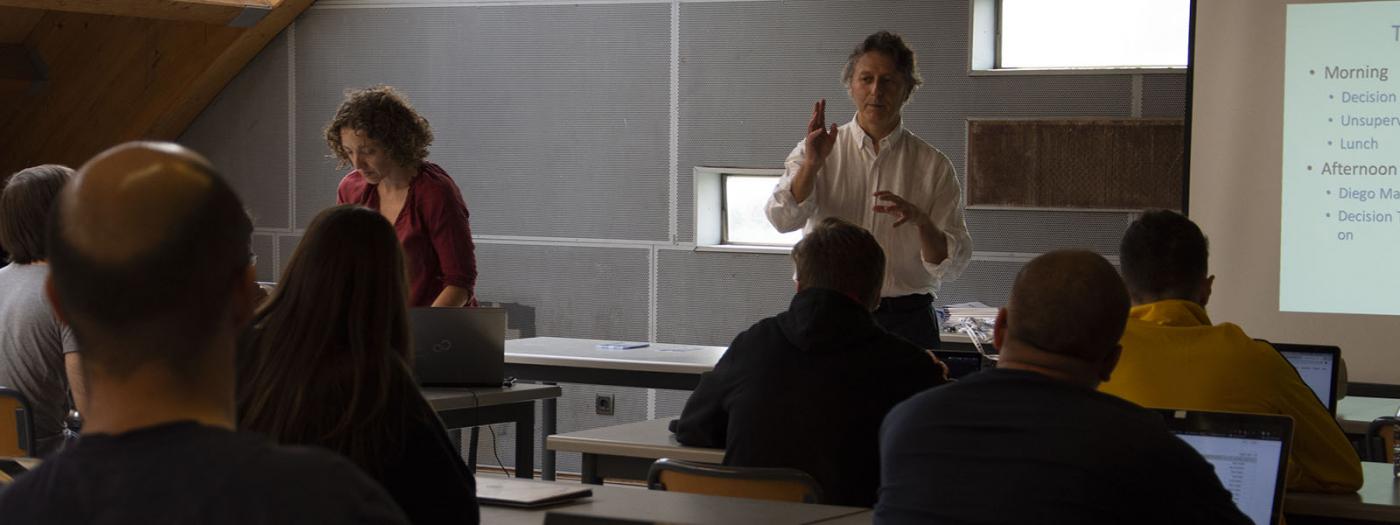COMCHA, the first school of Computing Challenges in High Energy Physics, was held at La Salle Campus Barcelona-URL on 9 of October, lasting 3 days. It brought together academics from the field of high-energy physics, including researchers, doctoral students and post-doctoral students, to explore how new computer technologies will respond to major challenges in the area of high-energy physics in major upcoming projects, such as the real-time analysis project at LHCb or the HL-LHC (High Luminosity Large Hadron Collider), which aims to expand CERN's Large Hadron Collider capacity to increase the amount of data that can be collected from each experiment.
These technologies include new hardware solutions (GPUs, FPGAs, etc.), new and unconventional reconstruction techniques (long-lived particles, etc.), new data analysis strategies, such as machine learning and parallelisation (a form of computing in which several simultaneous calculations can be performed in parallel to solve a large problem with greater speed) or the design of more efficient multicore processors.
The initiative began as part of the coordinated efforts by the DS4DS (Data Science for Digital Society) research group of La Salle-URL and the IFIC of Valencia (Institute of Corpuscular Physics). Both institutions are a part of the LHCb project (one of the six specialised particle detectors installed at CERN's LHC). Classes are aimed at the entire scientific community, highlighting the potential uses of computer engineering within the field of high-energy physics.
"To give just one example, our experiments at CERN produce, per second, ten times more data than that produced in the same time by Google, Facebook and Whatsapp combined," explains Arantza Oyanguren, a researcher at IFIC Valencia. "We need computational tools that are capable of processing the data and selecting the data that's useful”.
"To ensure its future, particle physics will need to solve computational challenges that were unthinkable until now," says Xavier Vilasis, Director of the Master's in Data Science and Vice-dean of the La Salle-URL Doctoral School, "and this depends on cooperation between physicists and engineers on issues such as artificial intelligence or new computational architectures".
This project is directly aligned with DS4DS, in particular with its line of research into Artificial Intelligence and Machine Learning applied to particle physics, led by Dr Míriam Calvo.
DS4DS is a research group focussing on the development and application of data science techniques and the study of their impact on the Digital Society. It offers a broad inspection of the problems relating to how we use data involving artificial intelligence, automatic learning and statistics, with a focus on the potential effects and assets for society in terms of the social sciences, in particular smart life, smart business and smart university.
It has been a pioneer in Spain in its use of architectures such as GPUs and AI techniques, and is a leading centre for education in these disciplines.
